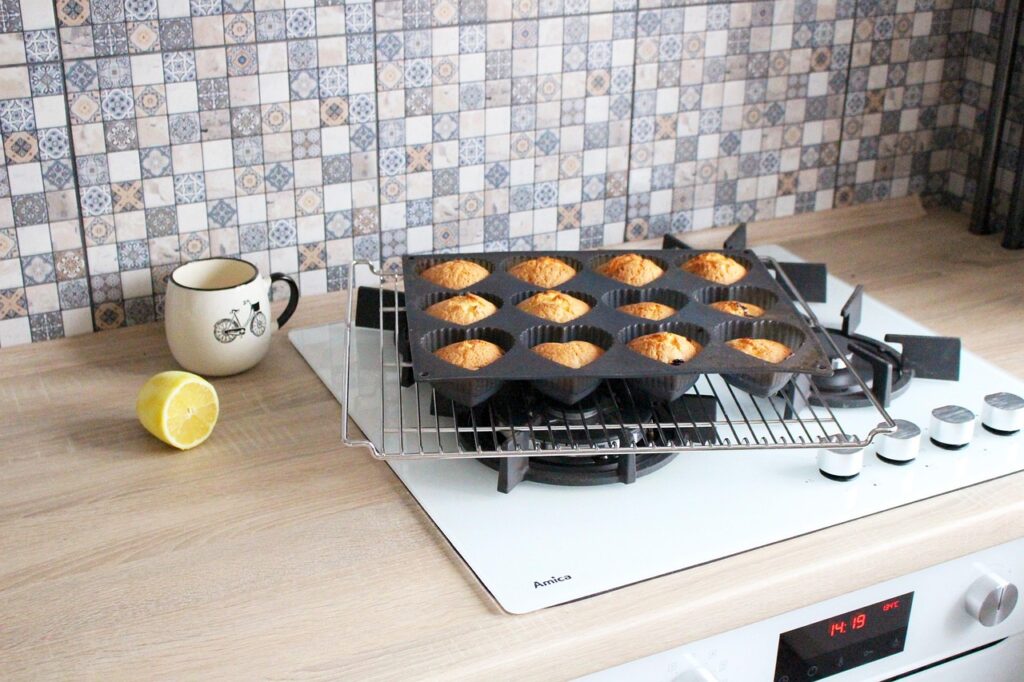In a world filled with uncertainty and constant change, establishing a daily routine can serve as a powerful anchor.
While routines are often associated with productivity and time management, their role in mental health is just as — if not more — important. A structured day offers a sense of control, reduces anxiety, and helps individuals feel more grounded, especially during challenging times.
Mental well-being isn’t just about avoiding negative emotions; it’s about building habits that promote stability, confidence, and resilience. One of the simplest yet most effective ways to support this process is by creating a consistent daily routine.
The Link Between Structure and Mental Stability
Our minds thrive on predictability. While spontaneous moments can add excitement and variety to life, a lack of structure can often lead to stress, fatigue, and emotional instability. This is especially true for individuals facing anxiety, depression, or burnout, as irregular sleep, chaotic schedules, and poor time management often worsen symptoms.
A routine serves as a mental framework. It breaks the day into manageable parts, allowing the brain to focus on the present without constantly questioning what’s next. This rhythm provides reassurance, lowers stress levels, and boosts emotional regulation. When we know what to expect, we’re less likely to feel overwhelmed by the unknown.
Routines Help Manage Stress and Anxiety
Stress often arises when we feel a lack of control. Unstructured days can quickly lead to feelings of disorganization and mental clutter, which can compound anxiety. On the other hand, a clear routine introduces consistency and balance. It acts as a safety net that supports decision-making and limits unnecessary pressure.
For example, starting the day with a simple morning routine — such as waking up at the same time, stretching, eating breakfast, and reviewing the day’s goals — creates a calming rhythm that can reduce mental tension. It helps the mind ease into the day, rather than reactively jumping from one task to another.
Additionally, routines reduce the number of decisions we need to make. This concept, known as “decision fatigue,” can lead to stress and burnout. By automating parts of the day through routines, the mind is freed to focus on more important emotional or cognitive challenges.
Sleep Patterns and the Role of Consistency
One of the most direct connections between daily routines and mental health lies in sleep. Irregular sleep patterns are closely associated with anxiety, irritability, and even long-term mood disorders. A consistent routine helps regulate the body’s internal clock, known as the circadian rhythm, which governs sleep-wake cycles.
Going to bed and waking up at the same time each day — even on weekends — reinforces healthy sleep habits. This consistency promotes deeper, more restful sleep, which directly influences cognitive function, mood regulation, and emotional resilience.
Sleep-deprived individuals often report higher levels of anxiety and depression. A routine that prioritizes rest, reduces late-night screen time, and includes calming pre-bed activities (like reading or meditation) can be instrumental in improving mental clarity and emotional well-being.
Boosting Self-Esteem Through Routine
Completing daily tasks — even small ones — can contribute to a sense of accomplishment. This feeling reinforces self-worth and purpose, which are vital to maintaining good mental health.
When we follow a routine and stick to it, we send a signal to our brain that we are dependable and in control. Over time, this consistency builds trust in ourselves, creating a foundation of confidence. This is particularly important for people recovering from difficult life events or mental health struggles, where self-doubt and low motivation are common.
A routine that includes self-care, productivity, social interaction, and relaxation helps balance all aspects of life. It supports a more positive mindset and can prevent the spiraling thoughts that often accompany feelings of worthlessness or helplessness.
Creating Balance Between Work and Rest
Many people struggle to maintain a healthy work-life balance, especially when working from home or managing multiple responsibilities. Without boundaries, work can seep into rest time, and personal time can be swallowed by distractions. This imbalance contributes to chronic stress and emotional fatigue.
A well-crafted daily routine helps separate professional tasks from personal time. It provides structure to work hours, mealtimes, breaks, and relaxation. For instance, scheduling a lunch break at the same time each day encourages mindful eating and physical rest. Designating an end-of-day ritual — such as logging off your computer, taking a walk, or journaling — helps mentally disconnect from work.
This balance is essential to prevent burnout. Rest and recovery are just as important as productivity, and routines help ensure that both are built into the day intentionally.
Daily Routines Improve Motivation and Goal Achievement
One of the most underrated benefits of having a routine is how it builds momentum. When you follow a structured day, tasks become habits. These small daily actions create a sense of progress — and progress is one of the strongest motivators for long-term growth.
A routine doesn’t just help you get things done; it helps you build toward something meaningful. When your day includes scheduled time for reading, learning, exercising, or even hobbies, you are more likely to see personal improvement over time. This feeling of progress reinforces a sense of purpose, which is essential for mental health.
Without structure, motivation can easily fade. A well-planned routine ensures that you keep moving, even on low-energy days, simply because the habit is already in place. This consistency becomes a support system that sustains you during periods of low motivation or emotional difficulty.
The Power of Routine During Difficult Times
Routines become especially valuable during periods of stress, grief, or crisis. When life feels uncertain or overwhelming, a stable routine can offer comfort and predictability. It provides a sense of normalcy when everything else feels out of control.
This is why routines are often encouraged during recovery from mental health challenges, physical illness, or major life changes. Establishing daily anchors — such as waking up at the same time, eating regular meals, and engaging in light physical activity — can create a rhythm that supports healing.
For individuals with depression or anxiety, the idea of completing tasks may feel daunting. Routines break the day into smaller, manageable parts. Even if motivation is low, the structure helps reduce decision-making and provides direction.
Moreover, during times of isolation or loss, routines that include moments of connection (like a daily phone call or journaling session) can prevent emotional withdrawal and keep the mind engaged.
How to Build a Healthy Daily Routine from Scratch
Creating a routine doesn’t have to be overwhelming. In fact, the best routines are flexible, realistic, and personalized. Here are a few practical steps to help you get started:
1. Start with a Morning Anchor
The way you start your day sets the tone for the rest of it. Begin with one consistent habit in the morning — it could be making your bed, drinking a glass of water, or taking five minutes to stretch. This small action helps establish momentum.
2. Set Fixed Times for Meals and Sleep
Eating and sleeping at regular intervals supports your physical and mental well-being. Choose consistent times for breakfast, lunch, dinner, and bedtime. This not only improves energy but also trains your body and brain to expect stability.
3. Prioritize One to Three Core Tasks Daily
Avoid overloading your schedule. Instead, choose a few key tasks that align with your personal or professional goals. Completing them gives a sense of achievement without overwhelming your mental bandwidth.
4. Include Breaks and Leisure Time
Balance is essential. Make time for hobbies, relaxation, or even doing nothing at all. Your mind needs moments of rest to function at its best. A healthy routine is not about constant productivity — it’s about sustainable well-being.
5. Be Flexible and Adjust Over Time
Routines should evolve as your needs and circumstances change. Stay open to adjusting your schedule without guilt. Life happens, and your routine should support you — not restrict you.
Routine vs. Rigidity: The Importance of Balance
While routines are highly beneficial, it’s important to avoid becoming rigid. Mental health thrives on structure, but also on adaptability. A routine that is too strict can lead to stress when things don’t go as planned.
Flexibility allows you to stay grounded even when unexpected events arise. For example, if you miss your morning walk due to rain, you can adapt by stretching indoors or rescheduling it for later. The goal is consistency, not perfection.
Learning to adjust without abandoning your entire day helps maintain your emotional resilience. This balanced approach to routine strengthens both your discipline and your self-compassion — two essential pillars of good mental health.
Summary: The Mental Health Benefits of Daily Routines
Let’s recap the main mental health benefits of establishing and maintaining a daily routine:
| Mental Health Benefit | How Routine Supports It |
|---|---|
| Reduced Stress and Anxiety | Provides predictability, lowers decision fatigue |
| Improved Sleep Quality | Regulates circadian rhythms through consistent schedules |
| Enhanced Self-Esteem | Builds confidence through regular accomplishment |
| Stronger Motivation | Creates progress and momentum through habit formation |
| Better Emotional Balance | Encourages healthy work-rest balance and personal care |
| Resilience During Hard Times | Offers structure and stability during emotional upheaval |
Final Thoughts: Routine as a Foundation for Well-Being
Mental health is not just about reacting to challenges — it’s also about building systems that prevent burnout, support emotional regulation, and promote a positive lifestyle. A daily routine is one of the simplest, most effective tools you can use to create this foundation.
Whether you’re navigating a stressful period or simply looking to feel more balanced, establishing a consistent routine can offer clarity, confidence, and peace of mind. It’s not about filling every minute with activity — it’s about creating meaningful rhythms that support your well-being every single day.

Hi there! My name is Ana Beatriz, I’m from Colorado, and I write this blog with great care during my free time.


